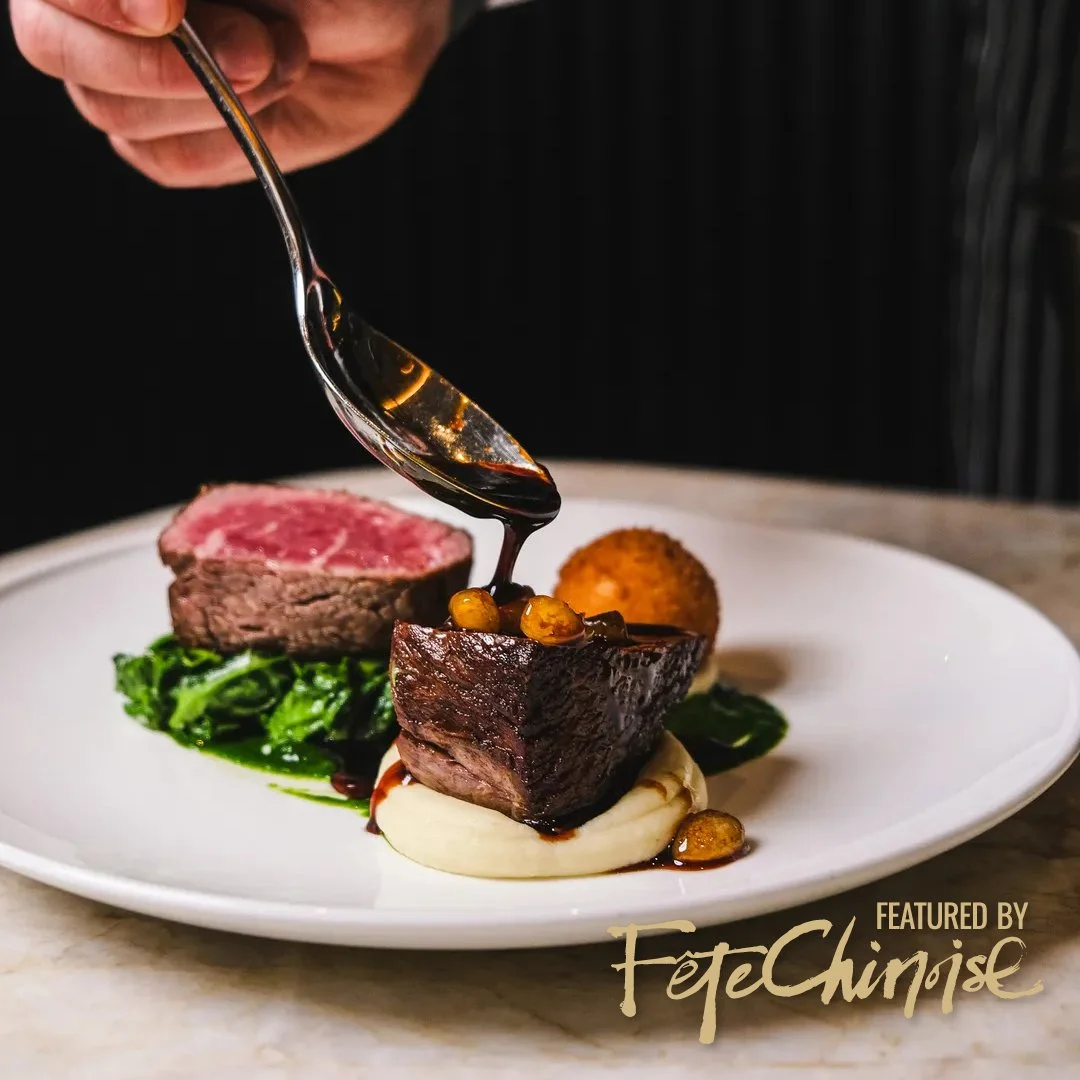5 Ways to Fight Stress & Anxiety According to Chinese Medicine
Written by Dr. Arthur Wai Kwong Lo
Edited by Wei Ding (Imelda) Lo
Introduction
Last year, the World Health Organization (WHO) included for the first time a section on Traditional Chinese Medicine (TCM) on its guide for diagnosing and classifying diseases. For many TCM practitioners (myself included), this was a huge step forward. For too long, TCM has been stereotyped as “pseudoscientific superstition.” Growing up in Hong Kong in the 1960s and 1970s, I rarely came across positive portrayals of TCM in society. An unregulated profession back in those days, TCM was seen as a quaint relic at best and unscientific quackery at worst.
It was not until my twenties, when I met the famous Hong Kong TCM expert Tam Po Kwan (譚寶鈞), that I started becoming more open towards TCM. TCM was a living, thriving medical system capable of dealing with conditions for which Western medicine had no real or permanent solutions, such as depression, bipolar disorder and anxiety disorders. To deal with such mood disorders, Western medicine uses counselling and medications such as anti-depressants, but the fact that these medications often have debilitating side effects prevents sufferers from receiving optimum therapy. TCM, on the other hand, uses natural ingredients rather than chemicals to treat the imbalances responsible for mood disorders. In TCM theory, mood disorders arise from the upset of qi (or vitality) and blood, which in turn negatively affects the rest of the body.
去年,世界衛生組織(WHO)在其疾病診斷和分類指南中首次納入了有關中藥的部分。對於許多中醫師(包括本人),這是向前邁出的一大步。中醫一直被邊緣化和刻板為「偽科學迷信」。在香港1960至1970年長大的時候,我很少遇到社會對中醫藥的正面描寫。當時是不受管制的職業,中醫的實踐充其量是最好的古樸文物,而最壞的情況則被視為不科學的庸醫。
直到二十多歲,我才開始對中醫更加認識,得到香港著名老中醫譚寶鈞指導,向我介紹中醫知識,教我治病。我逐漸意識到中醫藥不是封建迷信,而且是生機勃勃的醫療體系。中醫通常能夠應對西醫沒有真正方法解決的疾病,例如抑鬱症、躁鬱症、焦慮症、等等。為了應對這種情緒病,西醫使用行為治療和藥物治療(例如抗抑鬱藥),但是使用此類藥物會帶來許多副作用。中醫則使用天然成分來治療情緒病,通過中藥、針灸等治療方法,幫助人體恢復正氣,回復健康。在中醫理論中,情緒失調是由氣和血液的不適引起的,反過來又對身體的其他部位產生負面影響。
As an Ontario-certified TCM practitioner and acupuncturist, I have used TCM to help my patients deal with various conditions, including and particularly mood disorders. This is particularly relevant now that quarantine and social distancing have become commonplace globally as governments make concerted efforts to fight the COVID-19 outbreak. As an increasing number of people are forced to stay at home for long periods of time with reduced opportunities to work and socialize, rates of mood disorders such as anxiety, depression, and even post-traumatic stress disorder (PTSD) have begun to skyrocket.
Fortunately, TCM can help us in these trying times. TCM believes in the importance of curing the whole body, not just treating one condition or symptom, and as such, holds that there is a close relationship between your thoughts and your physical health. Those wishing to improve and strengthen their mental well-being are thus encouraged to strengthen their bodies through exercise, diet and lifestyle changes. TCM practitioners hold that diet is integral to regulating one’s emotions.
作為安大略省註冊中醫師和針灸師,我用中醫理論來治療各種疾病,包括尤其是情緒病。現在,隨著各國政府共同努力抗擊新冠狀肺炎病毒(COVID-19)的爆發,隔離和社會隔離已在全球變得司空見慣,這一點尤其重要。隨著越來越多的人被迫長時間呆在家裡,減少了工作和社交的機會,焦慮,抑鬱甚至創傷後應激障礙(PTSD)等情緒障礙的發病率開始飆升。
中醫可以通過草藥處方、針灸、氣功以及如上所述的自助服務來幫助治療情緒障礙。中醫相信治癒整個身體的重要性,而不僅僅是治療一種病症或症狀,因此,認為您的思想與身體健康之間有著密切的關係。因此,鼓勵那些希望改善和增強其心理健康的人通過運動,飲食和生活方式的改變來增強自己的身體。中醫認為飲食對調節人的情緒必不可少。
5 Home-Remedies for Stress & Anxiety during Quarantine 5種幫助您隔離期間減低壓力和焦慮的住家療法
1. Meditation 冥想
TCM practitioners believe that stress and anxiety directly affect your immune and nervous systems as well as your flow of qi. Meditating for at least 20-40 minutes a day can help you relieve stress and anxiety. Your qiwill flow smoother and you will feel more energized.
中醫師認為壓力和焦慮直接影響您的免疫和神經系統和氣流量。每天至少沉思20至40分鐘,可以幫助您平靜下來,緩解壓力和焦慮。您的氣勢會更順暢,您會更有活力。
2. Eat and Drink Well 健康飲食
TCM practitioners believe that emotional stability is tied to the immune system. As such, you should boost your immune system in order to stay calm and collected. Certain foods, such as dried roses, Tricholoma matsutake (松茸菇), carrots, and Cordyceps militaris (蟲草花) will help boost your immune system. You can make many different kinds of soups with these ingredients, such as:
l Apple, Bei Qi (北茋), Danshen (黨蔘), Cordyceps militaris (蟲草花), Lodoicea (海底椰) and Fish Maw (花膠) Soup
l Ficus Hirta (五指毛桃), Papaya, Cordyceps militaris (蟲草花), and Snow Fungus Soup
l American Ginseng, Apple, Chestnut, Snow Fungus, and Silkie Chicken Soup
l Green Radish, Carrot, Corn, and Fish Maw (花膠) Soup
Check out their website and newest book, “Immunity Strengthening Soups” for more information and free recipes!
中醫從業者認為,情緒穩定與免疫系統息息相關。因此,您應該增強免疫力,以保持鎮定和健康。 某些食材,例如玫瑰花、松茸菇、紅蘿蔔和蟲草花可以增強增免疫系統。您可以用些食材煲許多不同種類的湯,例如:
l 蘋果北茋黨蔘蟲草花海底椰花膠湯
l 五指毛桃木瓜蟲草花雪耳湯
l 花旗參蘋果栗子雪耳烏雞湯
l 青紅蘿蔔粟米花膠湯
3. Tai Chi (太極)
Practicing Tai Chi (太極) can help calm the mind. Tai Chi's slow, mindful breaths and movements have a positive effect on your ability to regulate emotions.
太極可以使人心靈平靜。緩慢動作和專心呼吸可以調節情緒。
4. Go to Sleep on Time 早睡早起
Lack of sleep weakens your immune system and will make you more prone to illness. Try to sleep at 10-11 pm and wake up at 7-8 am as often as possible.
睡眠不足會削弱免疫系統,使您更容易生病。
嘗試在晚上10點至11點睡覺,並儘可能在早上7點至8點醒來。
5. Set Goals For Yourself 生活有目標
It is easy to feel anxious about the future while in quarantine. As such, you should create your own schedule and think about what kind of goals (small or big) you want to achieve during this challenging time. According to TCM theory, developing a strong sense of responsibility is integral to maintaining emotional stability.
在隔離期間,很容易對未來感到擔憂。因此,您應該創建自己的時間表,並考慮在這個充滿挑戰的時間要實現什麼樣的目標。根據中醫理論,培養強烈的責任感是維持情緒穩定,及生活不可缺的元素。
Good luck!
















